What is a firmness scale?
The firmness of a mattress describes - as the name suggests - how soft or firm a mattress feels.
Differences in mattress firmness are caused by the use of different materials and their respective densities.
There are different types of mattress firmness:
What are soft mattresses?
These are generally memory foam mattresses with lots of body-contouring support, cushioning, and extra padding.
Soft mattresses are popular with people looking for superior comfort and relaxation and give you that sleeping-on-a-cloud feeling.
You'll often find mattresses that have an upper comfort layer of memory foam to provide extra squishiness.
What are medium-firm mattresses?
These are the perfect in-between, mattresses that are not too soft and not too firm.
Medium-firm mattresses will suit most people.
We could describe these as your marshmallow mattresses: still soft and squishy, but with a lot more firmness than a cloud.
What are firm mattresses?
Firm mattresses generally offer high levels of support and durability.
They are well-suited to athletes and people struggling with back pain and tension.
These are your sleeping-on-a-table mattresses, but, of course, there are also various levels here and not all tables are hard as concrete.
Unfortunately, there is no uniform industry standard for a mattress's firmness rating.
Some brands use terms like H2, H3, and H4, others simply describe their mattresses as soft or firm, and others, again, come up with their own firmness scale.
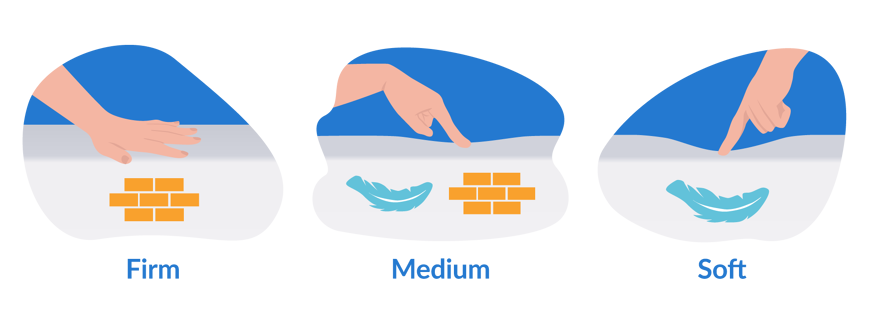
This is also why we at Sleep Hero have created our own firmness scale, which helps us classify mattresses better.
We use our firmness scale in all our mattress reviews and buying guides to help you figure out which is the perfect mattress for you.
Why is the right degree of firmness so important?
Choosing the right degree of firmness is important for healthy spinal alignment. 📏
- If your chosen mattress is too firm, your body will be forced to remain unnaturally straight, resulting in a misalignment of the spinal column.
- On the flip side, if your mattress is too soft, you'll sink into the mattress too deeply, resulting in a hollow back.
In both cases, your spine will be misaligned, which can lead to tension and lower back pain.
If you choose the right mattress with the right degree of firmness, though, your body will sink in at the centres of gravity (i.e. your shoulder and pelvis) but remain well-supported everywhere else.
This allows your spine to remain straight throughout the night, easing tension and allowing for a comfortable night's rest.
What should a good mattress do?
A good mattress should relieve pressure and support the body.
It has to cushion the entire body, while still providing enough support. The shoulders and pelvis need to sink in more deeply so that the spine remains well-balanced.

Walter Braun [1]
Sleep Expert
If you already struggle with severe back, neck, or joint pain, it's even more important to be aware of firmness levels and choose a mattress with the right level of support.
What's the difference between mattress firmness and stability?
Even though we refer to firmness as "the factor that determines how well you're supported", there is a deeper aspect that you need to pay attention to, and it's important to note the difference between firmness and stability.
People often assume that a firm mattress is necessary to keep your spine straight and that a soft mattress will automatically lead to back pain.
This isn't necessarily true.
- A firm mattress can result in back pain if it's not the right fit for you.
- Similarly, a soft mattress can have excellent stability and be perfect for you.
You always need to choose a mattress with good stability, while firmness can be a matter of personal preference.
But your build, weight, and height will impact which degree of firmness is best for you to ensure that the mattress you choose can support your body.
How to find the right degree of firmness
Even if you have a mattress that offers good overall support and stability, you still need to find a mattress with the right degree of firmness for you.

General sleeping preferences and your sleeping style may play a role, but the most important factors to consider include your weight, height, and preferred sleeping position.
You should consider the following general guidelines when choosing the right degree of firmness:
- The heavier or larger you are, the firmer your mattress should be.
- Side sleepers and lighter-weight people often require softer mattresses than back and stomach sleepers.
- Conversely, back and stomach sleepers require firmer mattresses.
- Your height also plays a role, and very tall people may require a firmer mattress.
Let's walk you through different ways of finding the right degree of firmness. 👇
Choosing the right degree of firmness according to body weight
Body weight is a decisive factor when selecting the right degree of firmness. 🏋️♀️
But, since you also need to consider height, build, and prefered sleeping position, we can only give general guidelines and you still need to consider everything on a case-by-case basis.
The following table may help you decide which degree of firmness is right for you:
| Feeling | Recommended body weight | |
| H1 | Soft | Up to 60 kg (132 lbs) |
| H2 | Soft to medium-firm | 60 - 80 kg (132 - 176 lbs) |
| H3 | Medium-firm | 80 - 100 kg (176 - 220 lbs) |
| H4 | Firm | From 100 kg (220 lbs) |
| H5 | Extra-firm | From 130 kg (286 lbs) |
Choosing the right degree of firmness according to sleeping position
Your sleeping position also greatly impacts which degree of firmness will be right for you.
- Side sleepers: With side sleepers, only a few parts of the body touch the mattress. This means that your entire body weight is focused at these points, putting an enormous amount of pressure on the mattress and creating distinct pressure points. This is why side sleepers should choose slightly softer mattresses. These allow your hips and shoulders to sink into the mattress much more deeply, keeping the spine in a healthy alignment.
- Back sleepers: Back sleepers generally do well on medium-firm mattresses. They need enough firmness to keep the spine in an optimal alignment, but they'll also require some give to allow the heavier pelvis to sink in.
- Stomach sleepers: Stomach sleepers can afford to choose slightly firmer mattresses. They need more support to keep their hips lifted and prevent the formation of a hollow back.
It's worth remembering that sleeping position and body weight often work together in deciding which degree of firmness will be best for you.
Choosing the right degree of firmness for couples
Couples should pay special attention to the degree of firmness before buying a mattress.
This is simply because not every degree of firmness will be equally suitable for both partners. 👩❤️👨
In general, we'd recommend sticking to medium-firm mattresses and making use of risk-free trial periods to make sure both partners sleep comfortably.
If you and your partner are of largely varying heights or body weights, though, you may need to make a different plan:
- Two single mattresses: One option would be to buy two single mattresses that are the same height but have different degrees of firmness. In this way, each mattress will be perfect for each individual, ensuring that both partners can sleep well. You can always buy a bed bridge to get rid of the little gap between the two mattresses.
- Customisable mattresses: You could also invest in a customisable mattress. These are mattresses that offer different degrees of firmness on each side of the mattress so that each half can be individually adjusted. This is ideal but can be a little more expensive.
Zip-and-link mattresses are also an excellent option.
Choosing the right degree of firmness for children
Firmness is also important to consider when buying a mattress for your child.
While teenagers and children over the age of 6 can sleep quite comfortably on adult mattresses, babies, toddlers, and small children under 6 generally require a special cot mattress.
These offer the perfect medium-firm feel to support growth and healthy bone development.
If a child's mattress is too soft or too firm, there is a risk of spinal deformities developing - especially at an early age.
The Simba Hybrid Cot mattress is one of our favourites.
It's always worth spending a bit more time finding which degree of firmness works best.
Luckily, most bed-in-a-box brands offer risk-free trial periods, so you can always send a mattress back if it doesn't work for you.
The Sleep Hero firmness scale
If you've already browsed through our best mattress reviews, you'll undoubtedly have come across references to the Sleep Hero firmness scale.
We've decided to create our own firmness classification system as it allows us to more easily compare mattresses to each other.
We rate mattresses on a scale of 1 to 10, where 1 is the softest and 10 the firmest.
Our firmness scale is based on our personal experiences and comparisons with different people in different sleeping positions.
| General feel | Recommendation | |
| Firmness 1 - 4 | Very soft | Side sleepers or very light-weight people |
| Firmness 5 - 7 | Medium-firm | Good for most sleeping positions & body weights |
| Firmness 8 - 10 | Very firm | Good for stomach and back sleepers & heavier-weight sleepers |
Using our scale helps us recommend different degrees of firmness to people with different sleeping positions.
Some of our favourite mattresses:
Can you change your mattress's firmness level?
There is only one way to change your mattress firmness level, and that's by adding a mattress topper.
Mattress toppers are generally intended to soften up a firm mattress.
The thicker the mattress topper, the more of a noticable difference you'll feel.
If your mattress is too soft or not supportive enough, you'll need to buy a new mattress.
This is why we like risk-free trial periods, as they give you the chance to try the new mattress and send it back if it doesn't work for you.
Check out our favourite mattress toppers:
Understanding mattress firmness
Finding the right degree of firmness is essential, not only to the quality of your sleep but also to your health.
You need to find a mattress that will support you and keep your spine in an optimal alignment so you can wake up feeling refreshed and without any sort of tensions, aches, or lower back pain.
Our Sleep Hero firmness scale has been specifically designed to help you navigate the world of mattress firmness and find the mattress that's perfect for you.
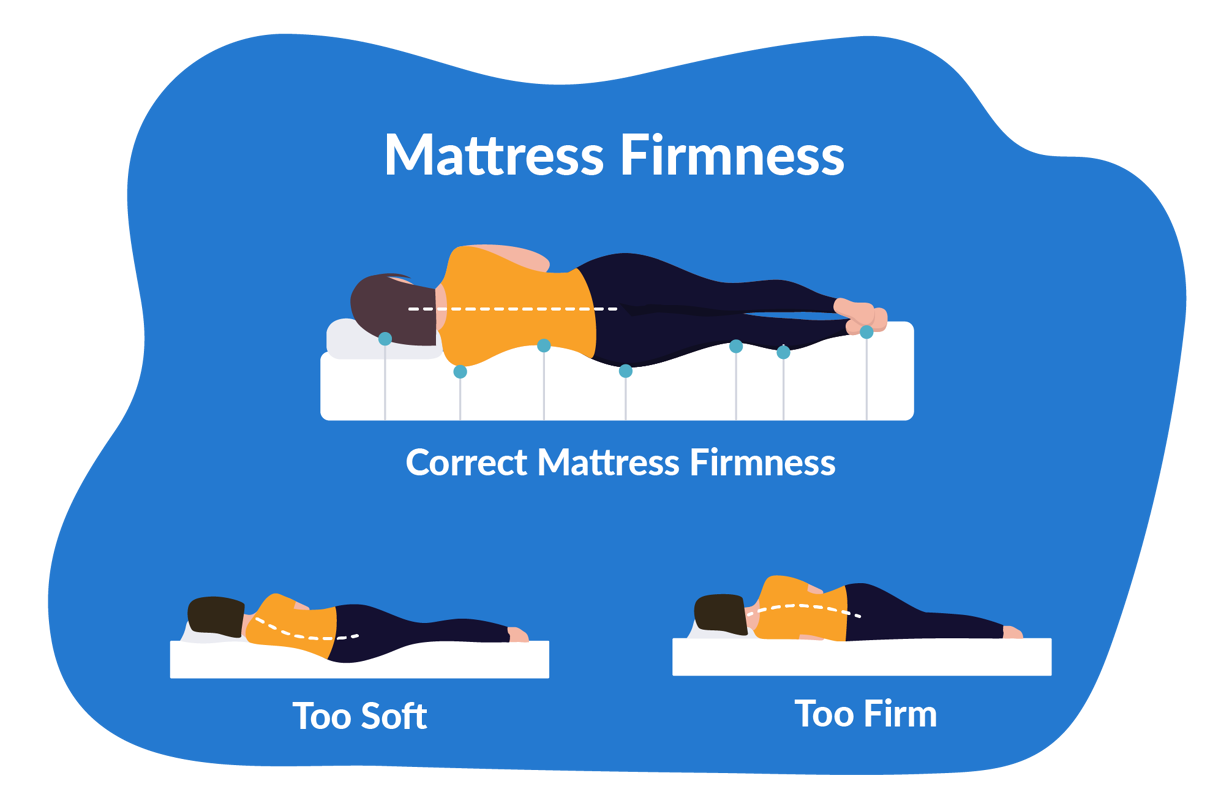





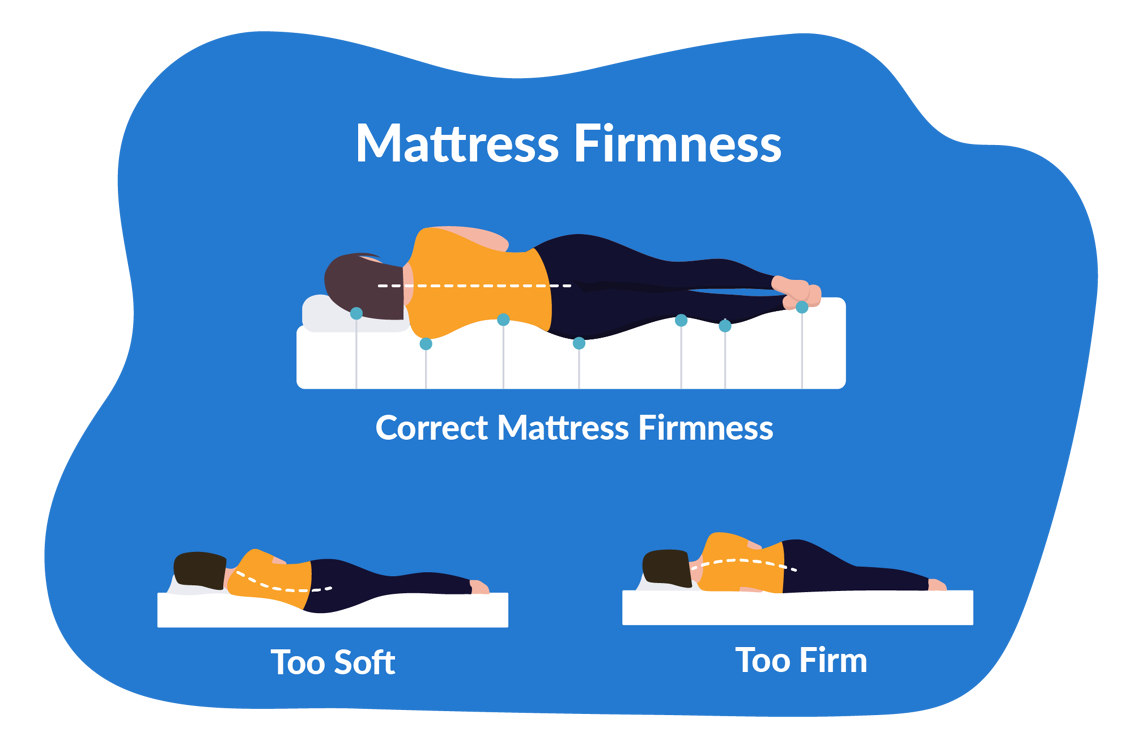
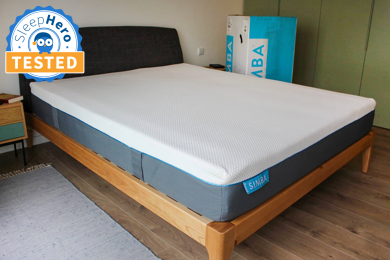

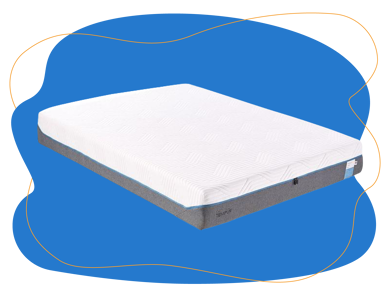

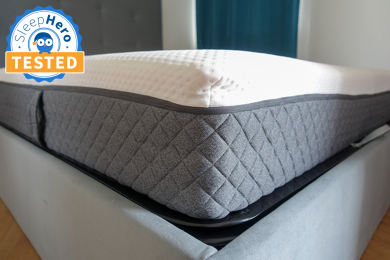

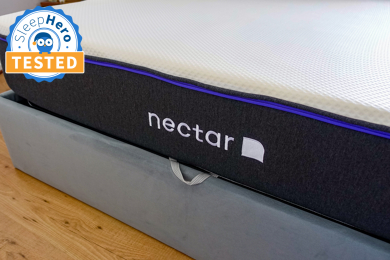

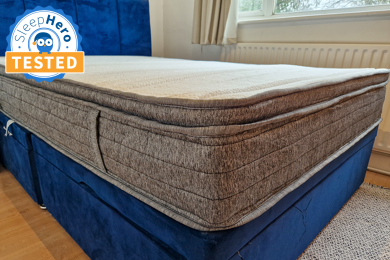

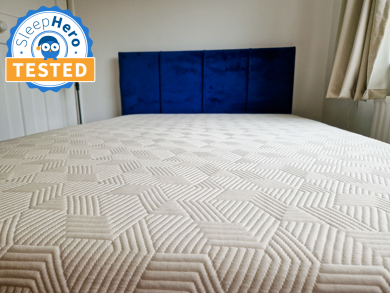


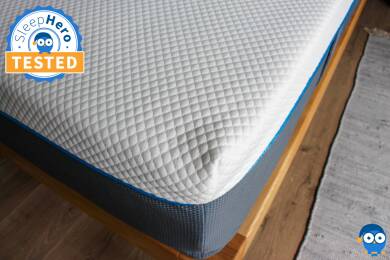

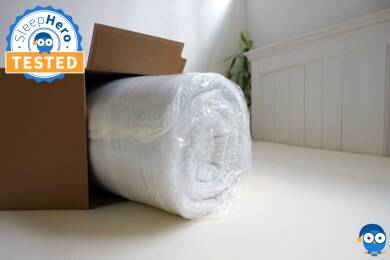
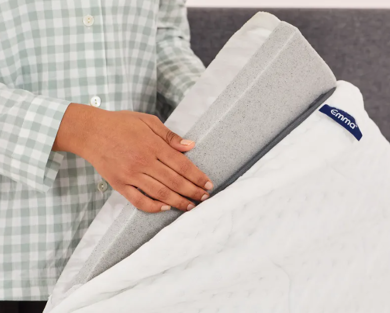
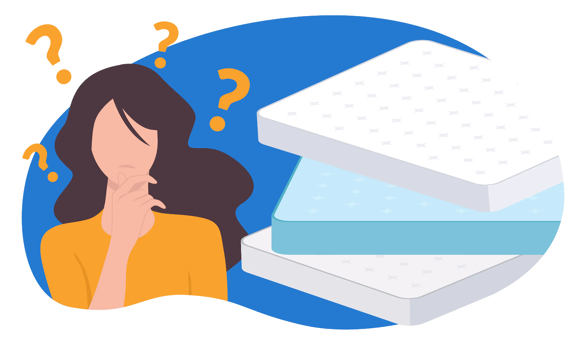




Alternatively, message us directly via the Contact Us page.